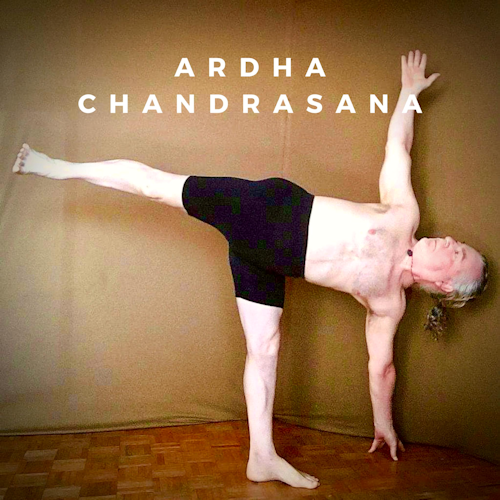
James Traverse has over 40 years of experience in the art and science of yoga. He is a yoga educator and writer who communicates a simple, clear and time-tested means of understanding your true nature. The mechanism of this experiential method is ‘The Way of Insight’ as the switchover from conceiving to purely perceiving. This approach flowered principally out of James’ studies with his teacher, Jean Klein, who initiated him in the ways of Advaita Vedanta and Kashmiri Shaivism. His other influences include the works of J. Krishnamurti, David Bohm, Rumi, Adi Shankaracharya, Ramana Maharshi, Sri Nisargadatta Maharaj, Atmananda Krishnamenon, Vivekananda and the yoga of B K S Iyengar, whose method he studied intensely for the first 15 years of his spiritual journey.
Welcome
Spiritual Awakening Yoga with James Traverse via experiential understanding practices like Yoga Nidra.
What is sought in this practice is insight, whereby you see the current situation clearly, instead of through the global culturally conditioned lens of what you have been told.
Awakening Spiritual is realized via practices like Yoga Nidra that involve deep relaxation, meditation, self-inquiry and insight. Here’s a brief outline of how you might approach this:
- Start with setting your intention for awakening. This might involve reflecting on what you hope to achieve through your practice and what spiritual growth means to you.
- Engage in regular yoga and meditation practices to cultivate self-awareness and inner peace. Yoga Nidra, in particular, can be a powerful tool for deep relaxation and self-discovery.
- Use Yoga Nidra sessions to explore your inner landscape, release emotional and mental blockages, and connect with your higher self or spiritual essence.
- Combine the practice of Yoga Nidra with self-inquiry and contemplation. Journaling about your experiences and insights can be a valuable part of this process.
- Be open to the insights and revelations that may arise during your practice. Awakening Spiritually involves a shift in perception and a deeper understanding of the self and the nature of reality; you do not attain anything that you do not already have – you unveil your true nature via insight.
Awakening Spiritually is a deeply personal and individual journey, so it’s important to approach it with an open heart and mind, and to be patient and compassionate with yourself as you progress on this path.
People Also Ask
What is the experience?
Strictly speaking it is not an experience as there is no “experiencer’. It is an absence that the mind speaks of with statements like “Aware of being aware” and ‘I am that I am” – in this way it labels that which is beyond its limitations as it attempts to understand it.
Is the ‘absence’ you speak of the absence of experience?
It is not the absence of experience; rather it is the experience of absence that the mind labels as an ‘experience’. This ‘absence’ is extraordinarily simple as it when the mind is silent.
What is Love?
Love cannot be defined, yet it is knowable, because Love is what it does. It is the nature of Love to Love – You are That!
In other words, we do not know what Love is as it is not a ‘thing’ that can be objectified; we understand Love via what it does. It is the nature of Love to Love. Thus, Love is a noun and a verb and it is clear that the noun and the verb are not two things.
What is Insight?
Insight is clarity.
Insight via yoga practice and meditation refers to the ability to gain a deep experiential understanding or clear perception of a situation or problem. It involves a sudden realization or understanding that allows someone to see things in a new way or solve a problem more effectively. Insight can come from various sources, such as personal experiences, reflection, or the input of others.
People with insight are able to see connections, patterns, and underlying truths that may not be immediately apparent to others. This understanding leads to new ideas, solutions to problems, and a deeper appreciation of the world around us. Developing insight is a valuable skill that enhances decision-making, creativity, and personal growth.
What is Spiritual Awakening?
Spiritual awakening is a process of insight, self-discovery and inner transformation that involves a deepening of awareness and understanding of one’s inherent spiritual nature. It involves a shift in perception, a heightened sense of connection to the universe or higher power, and a greater awareness of the interconnectedness of all things.
People who experience spiritual awakening undergo profound personal growth, a reevaluation of their beliefs and values, and a deepening of their spiritual practice. It can be a challenging and transformative journey that leads to greater inner peace, compassion, and a sense of purpose. Spiritual awakening is a deeply personal experience and can take many different forms, depending on the individual.
What is Spiritual Awakening Yoga?
Spiritual Awakening Yoga is a form of yoga that focuses on the spiritual and meditative aspects of the practice. It incorporates elements of mindfulness, meditation, breathwork and insight to help practitioners connect with their inner selves, gain a deeper understanding of their spiritual nature, and achieve a sense of awakening or enlightenment.
This yoga approach emphasizes self-discovery, personal transformation, and a deeper connection to the divine or universal energy. Practitioners of Spiritual Awakening Yoga seek to cultivate a sense of inner peace, harmony, and spiritual growth through their practice.
What is Yoga Nidra?
Yoga Nidra is a guided relaxation meditation whereby you are relaxed yet alert and experience the true nature of your being.
Yoga Nidra, is also known as yogic sleep – it is a powerful relaxation and meditation technique that is practiced while lying down. It is a systematic method of inducing complete physical, mental, and emotional relaxation while maintaining awareness.
During a Yoga Nidra session, practitioners are guided through a series of instructions to help relax and release tension from the body, calm the mind, and experience a deep state of relaxation. It is often used for stress reduction, deep relaxation, and as a tool for self-inquiry and personal growth.
What are the roles of yoga Asanas, Breathwork, Gratitude and Mindfulness in Yoga Nidra Practice?
In a Yoga Nidra practice, each of these components plays a specific role:
- Asanas (Yoga Poses): Asanas help prepare the body for the practice of Yoga Nidra by releasing physical tension and promoting relaxation. They also help in creating a sense of comfort and ease in the body, which is essential for the deep relaxation experienced in Yoga Nidra.
- Breathwork (Pranayama): Breathwork techniques help to calm the mind and bring awareness to the breath. In Yoga Nidra, specific breathwork practices can be used to further relax the body and mind, and to facilitate a state of deep rest.
- Gratitude: Cultivating a sense of gratitude during a Yoga Nidra practice helps to shift the focus from negativity or stress to positive emotions. This can have a profound impact on the overall experience, promoting a sense of contentment and well-being.
- Mindfulness: Mindfulness practices help to bring awareness to the present moment, allowing the practitioner to observe thoughts, sensations, and emotions without judgment. This awareness can deepen the experience of Yoga Nidra and promote a sense of inner peace and relaxation.
Incorporating these elements into a Yoga Nidra practice enhances the overall experience and help individuals to access a state of deep relaxation, self-awareness, and connection to the present moment.
Summary

Spiritual awakening gives a sense of clarity and understanding about the true nature of reality and the self. It often involves a process of shedding old thought patterns and habits that no longer serve the individual, leading to a greater sense of freedom and authenticity. This process can be both liberating and challenging as individuals navigate through their newfound insights and integrate them into their daily lives. Ultimately, spiritual awakening is a journey towards greater self-realization and a deepening connection to the spiritual essence of life. James Traverse who has over 40 years of Yoga Teaching and Practice is a revered facilitator of this
Practitioners of Spiritual Awakening Yoga engage in guided reflective exercises, chanting, and visualization techniques to enhance their spiritual experience. The practice encourages individuals to embrace a sense of oneness with the universe and to explore their inner consciousness through yoga postures and meditation. By cultivating a deep connection to their spiritual essence, practitioners aim to live authentically and aligned with their higher purpose, bringing harmony and balance to their lives. Spiritual Awakening Yoga offers a path for individuals to embark on a journey of self-discovery, inner healing, and spiritual evolution.
In a Yoga Nidra practice, the integration of yoga asanas, breathwork, gratitude, and mindfulness creates a holistic approach to deep relaxation and self-discovery. The combination of gentle yoga poses and breathwork sets the stage for the body to release tension and enter a state of deep calm. Cultivating gratitude during the practice shifts the focus towards positivity and contentment, fostering a sense of emotional well-being. Additionally, the practice of mindfulness allows individuals to observe their thoughts and sensations without judgment, promoting a profound sense of inner peace and connection to the present moment. By incorporating these elements into Yoga Nidra, practitioners directly experience profound relaxation, self-awareness, and spiritual growth.
Books
Seven Stages of Spiritual Awakening
.